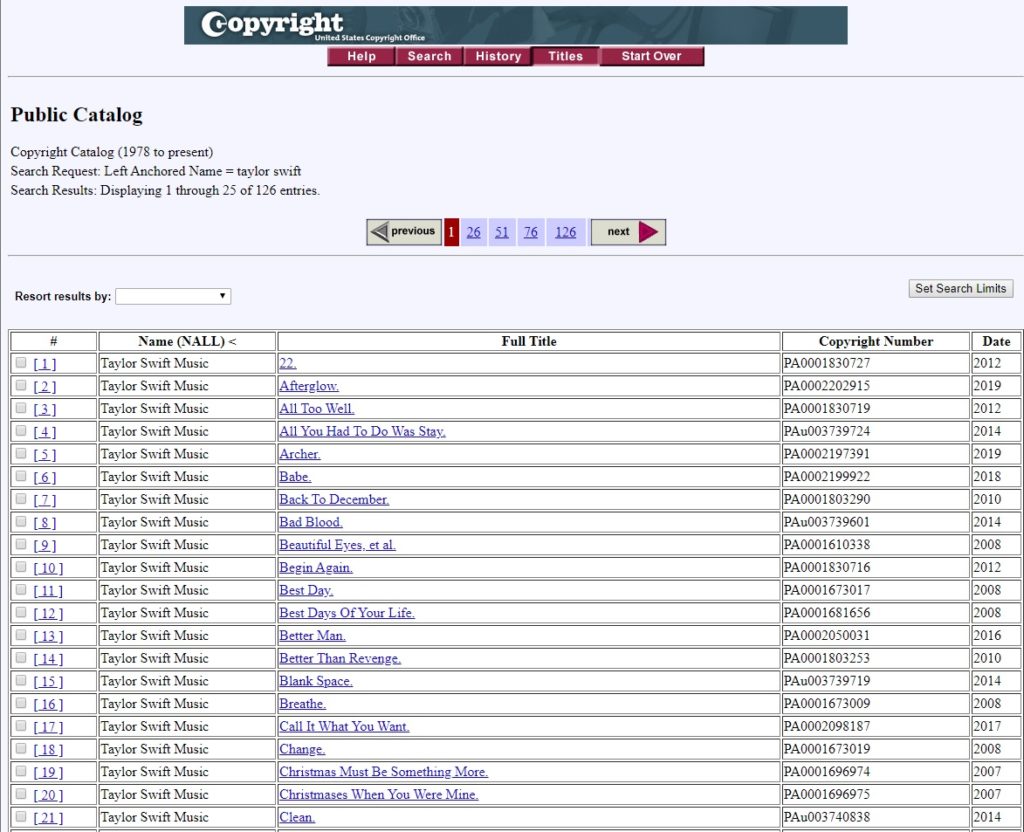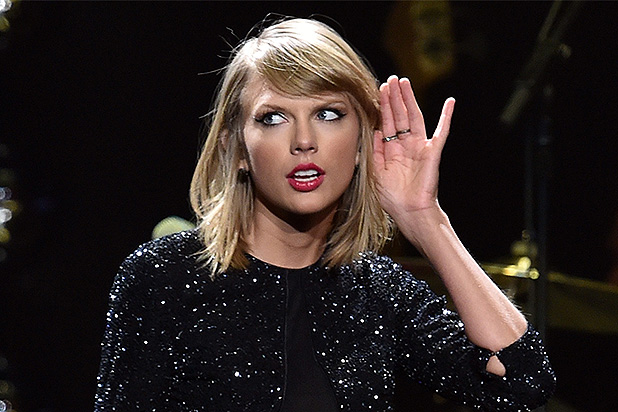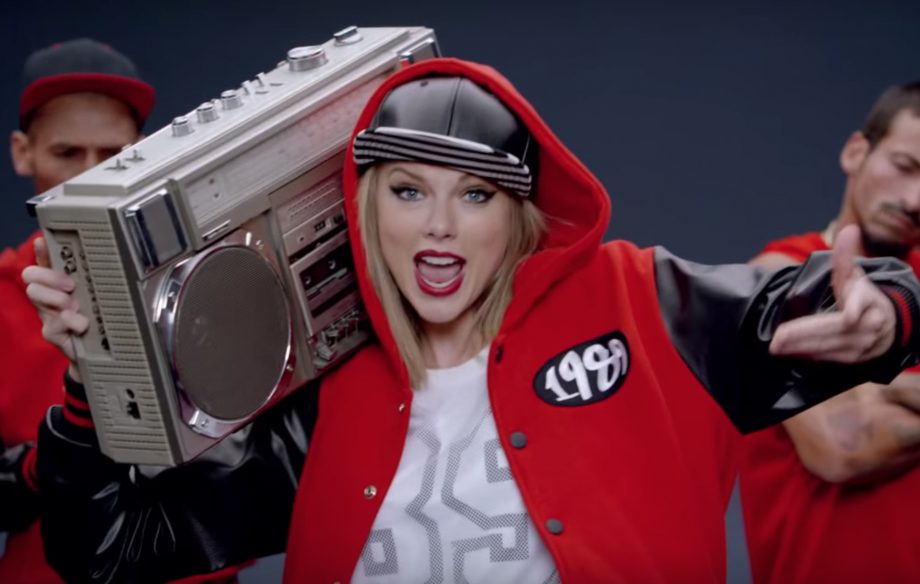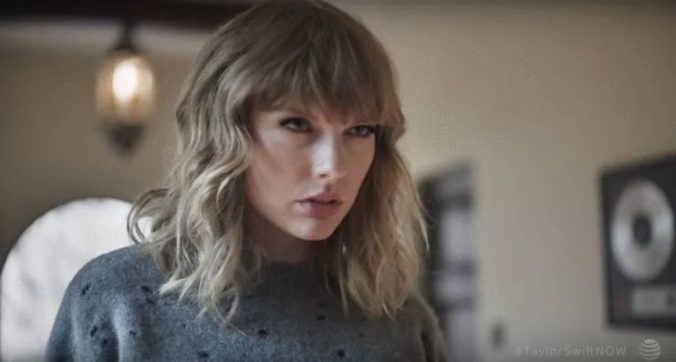Taylor Swift is one of the most prominent and successful musical artists of this decade. She has registered over 100 song copyrights with the U.S. Copyright Office.[1] Of course, Swift was a teenager when she first entered the music industry. The stories of exploitation within the industry by record companies, managers, agents and representatives are vast. It appears not even Taylor Swift was immune from a rather nasty dispute with the entity that produced her first six albums.
Over the weekend, Swift sent out a tweet to her 85 million Twitter followers.
While I am very familiar with who Taylor Swift is (though I prefer Tool), there are enough stories about her ongoing dispute with Scooter Braun, Scott Borschetta and Big Machine Records. I will let someone else explain the gossipy details involved there. Nor will I perform any deep dives into the private equity acquisition of Ms. Swift’s former record company that led us to these contractual impasses. Elizabeth Warren and AOC have already dipped their toes into that murky water.
Instead, I immediately realized this topic has copyright law implications. Did you know that most recorded songs have at least two separate copyrights associated with them? That is partially why there is such drama between Taylor Swift and Big Machine’s new owners. Ms. Swift, for one, very much does not welcome these new corporate overlords.
Copyrights in Music
Musical Work Copyrights
As mentioned, Taylor Swift is the author and owner of over 100 copyright registrations with the U.S. Copyright Office. These registrations are for the “musical work” for each of her songs, also known as the “musical composition.” This copyright covers the underlying music and lyrics for a song. Most often this is recorded or “fixed” through sheet music.

Taylor Swift is lucky here. Many songwriters lack leverage when working with the music industry, and to get any of their music recorded or performed, songwriters often will “assign” at least a portion of the musical work copyright to the publisher. The songwriter is always and forever the “author” of the song for this copyright, but they may not be the sole “owner” of that same copyright. You can see the potential downsides of this already. More prominent artists are able to avoid this transaction (or at least can buy-back their music copyrights at a later time).
It appears that Taylor Swift is the owner of most of her musical works. This allows her to perform all of her songs without having to pay royalties to third-party publishers. It also allows her to license out her works to whomever she chooses – and also block licenses if she desires. This is consistent with Copyright Law. Section 106 of the U.S. Copyright Act[2] provides a copyright owner certain “exclusive rights” in copyright. These include:
(1) to reproduce the copyrighted work in copies or phonorecords;
17 U.S.C. 106
(2) to prepare derivative works based upon the copyrighted work;
(3) to distribute copies or phonorecords of the copyrighted work to the public by sale or other transfer of ownership, or by rental, lease, or lending;
(4) in the case of literary, musical, dramatic, and choreographic works, pantomimes, and motion pictures and other audiovisual works, to perform the copyrighted work publicly;
(5) in the case of literary, musical, dramatic, and choreographic works, pantomimes, and pictorial, graphic, or sculptural works, including the individual images of a motion picture or other audiovisual work, to display the copyrighted work publicly; and
(6) in the case of sound recordings, to perform the copyrighted work publicly by means of a digital audio transmission.
Pretty cool, right? But look closer. Specifically, look at (6) – “in the case of sound recordings…” This is where Taylor Swift and many, many others have such a natural conflict with the music industry as currently constituted.
Taylor Swift does not own the copyright to the sound recordings.

Sound Recording Copyrights
The “sound recording” is a wholly independent copyright, separate and apart from the “musical work” copyright. This copyright covers exactly what it appears to: the actual recording of a song. This is often known as the “master” recording of a musical composition. This also is an entirely separate potential revenue stream that the owner of musical work rights may not have access to. Including Taylor Swift. Sound recordings include the rights to record sales revenue and master use licenses. In nearly every context, the record label owns the masters and the copyrights to the sound recordings. Not the songwriter.
This is why the sale of Big Machine Records to someone Taylor Swift despises was so newsworthy. Scooter Braun owns the sound recording copyrights and there is not much Taylor Swift could do about it. Look again at those “exclusive rights.” Taylor Swift does not own the right to “perform the copyrighted work publicly by means of a digital audio transmission.” Her potential performance of songs from her first six albums on a television show, including at the American Music Awards, will be broadcast and streamed. It will also be “fixed” as a separate sound recording. This is partially why Scooter and crew are objecting.
There are a multitude of other contractual factors, terms, and agreements above and beyond just the copyrights that are involved in the Taylor-Scooter dispute, but he owns the sound recording copyrights and this has caused Swift substantial upheaval in her ability to promote her brand and her entire musical catalog – even for songs where she owns the underlying musical work copyright.
Taylor Swift’s Copyright Work-Around
This is why there is chatter about Taylor Swift “re-recording” all of her old songs. As the owner of the musical works, she owns the underlying song. If she re-records each song independently and creates new “masters” for these songs – these are new sound recordings and therefore new sound recording copyrights that would theoretically not be owned by Big Machine or Scooter. At which point, Taylor Swift would effectively merge the two independent copyrights and have the exclusive control over her entire catalog (while Scooter would still have full control over the “old” sound recordings).

It appears that pursuant to the contract with the recording company, Swift is not allowed to engage in any re-recording of her old songs until the end of 2020. After November 2020, however, she is free and clear to re-record, re-mix, re-arrange or even re-construct and re-write any of the songs from her first six albums. This is the advantage of owning the musical work copyrights in whole.
The lesson for musicians? Write your own songs and control your own fate as much as you can. Your entire career can be governed by who owns the copyrights. All of the various copyrights
[1] Most are in the name “Taylor Swift Music.” https://cocatalog.loc.gov/cgi-bin/Pwebrecon.cgi?Search_Arg=taylor+swift&Search_Code=NALL&PID=SbpY6bK2xw9H7FIXTrnRTvzmkZ5p&SEQ=20191118090853&CNT=25&HIST=1
[2] 17 U.S.C. § 106.

Recent Comments